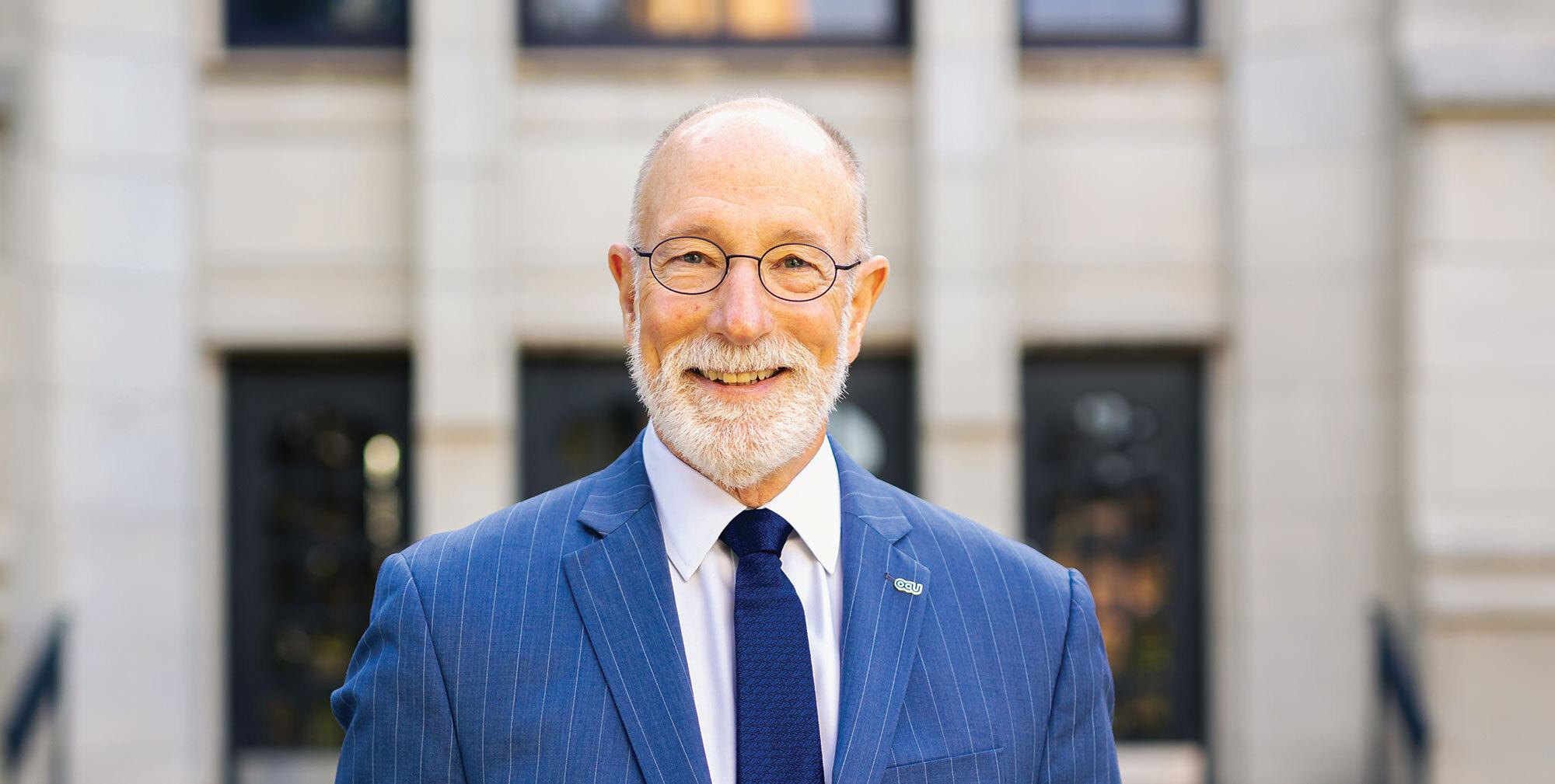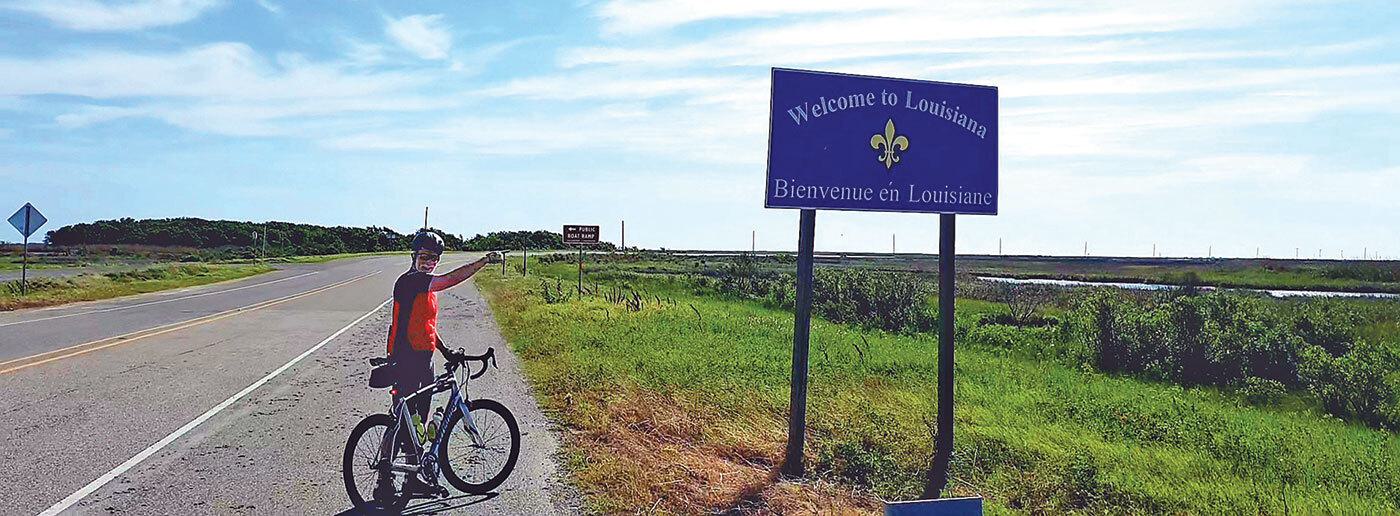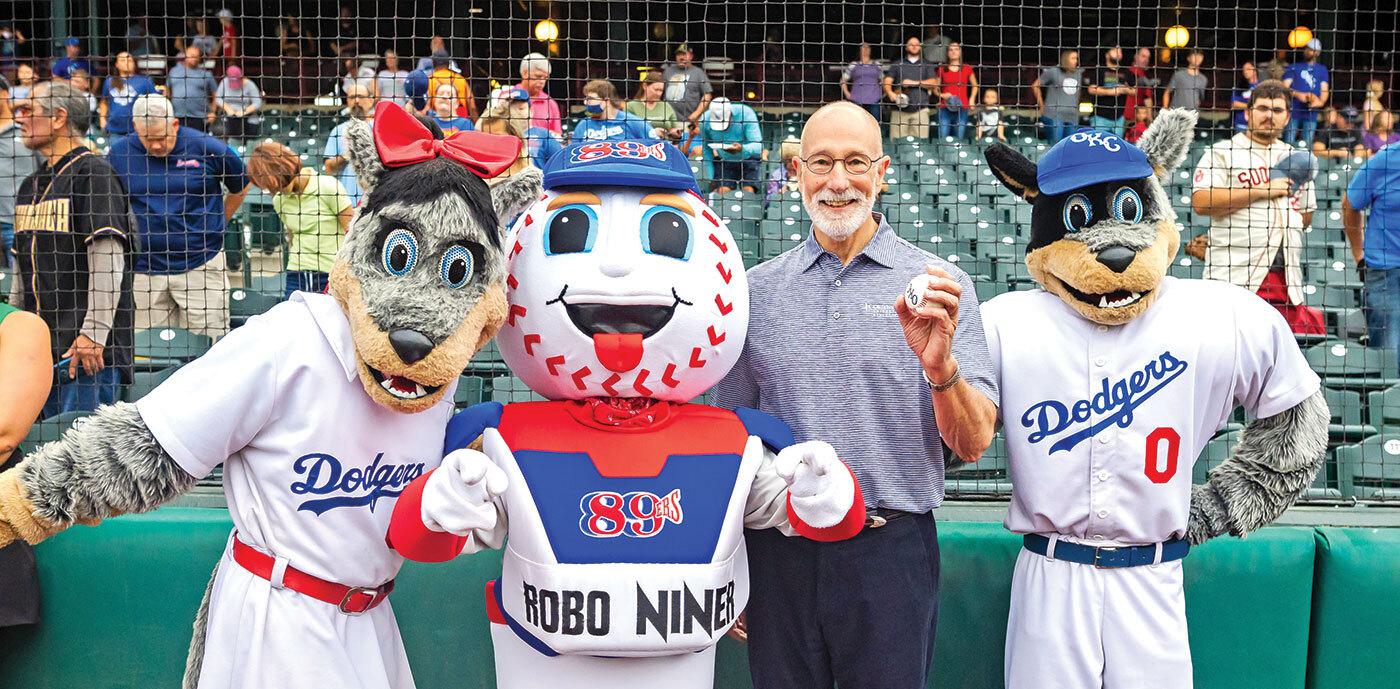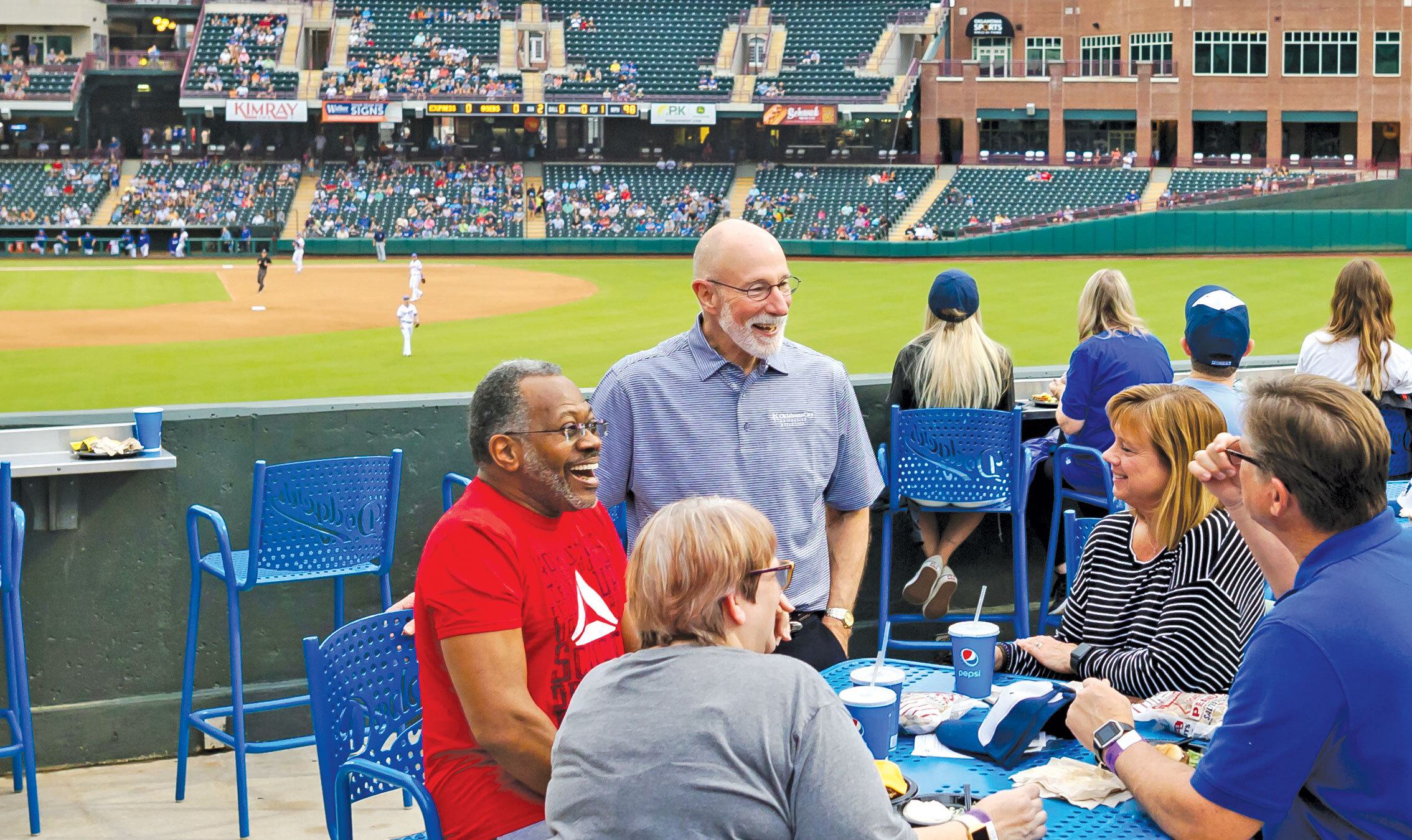by Nick Trougakos

Stanley Draper Drive wraps about 13 miles around its namesake lake in southeast Oklahoma City.
Just to the south of Tinker Air Force Base, the road typically sees little traffic. It has uphill climbs and downhill glides. As you travel the pavement, you can find yourself fighting into the Oklahoma wind, or feeling the breeze coax you along from behind.
It’s a route ����Ӱ��AV President Kenneth Evans has lapped hundreds of times on his high-performance road bike.
Cycling is a passion – perhaps one of the biggest passions after his sons and grandchildren and his art collection – for Evans. He relates the story of taking almost an hour to begin a routine physical at his doctor’s office because they were both engrossed in a conversation about the most-recent stage at the Tour de France.
����Ӱ��AV’s newest president – the school’s 19th – picked up the pastime when he himself was 19, and since has completed numerous 100-mile rides in places all over the country. This includes rides in Missouri, where he keeps a home in Columbia, and in Texas, where he served as president of Lamar University in Beaumont for eight years.
The majority of his early-morning rides around Lake Stanley Draper came during Evans’ previous stop in the Oklahoma City metro, when he was business dean at the University of Oklahoma for six years. That stint ended in 2013, when he assumed leadership at Lamar.
Fast forward to an August morning this year. Recently installed as president at ����Ӱ��AV, Evans returned to Lake Stanley Draper for a reunion ride on his favorite route. The president said he sees such rides as an opportunity to clear his head.
“It’s as much a therapeutic event as it is a physical event,” he said.
The endurance bike ride also has parallels, Evans said, with running a university.
“There is an endurance associated with any role in a leadership capacity,” he said. “There is an element where, as you’re working on initiatives, you have to persist. At the same time, when the elements are working against you, you need to know to get off the bike and re-route and come back and try it again.”
There are times when there are significant differences, as well.
“I’ve bailed on rides when heavy torrential rains have caught me when I didn’t think they were going to happen, or something else has occurred,” he said. “The difference is, in most cases when I ride, I ride alone. There’s no way in the world that you can do what we do here solo. It’s a team effort, it’s a community engagement, or we’re not going to get where we need to go.”
Evans said he’s already seen evidence of that community engagement in his first few months on campus.
Upon his arrival at ����Ӱ��AV, he immediately noticed the faculty and staff commitment to student success, he said. As students showed up on campus, “I was just really impressed with their energy and how engaging they were, and the kind of questions they were asking. I found them to be really talented and I was excited about the opportunity to work with them.”
Addressing an August luncheon at the Oklahoma City Rotary Club, the president explained one of his goals for working with ����Ӱ��AV’s student body.
“We must be involved in the creation of knowledge,” Evans said. “We’re not preparing students to just know how to function in the now. I want them to function in what can be. To be able to function in what can be means they have to have the ability to challenge what is.
“Ask intelligent questions, build frameworks to investigate it, and then eventually make meaningful differences in transforming the industries they’re involved in.”

Return to Oklahoma City
Evans’s decision to leave Lamar was influenced by the passing of his wife, Nancy, in 2018, after a battle with cancer. The president said it was difficult to be on the campus without his wife, and each day see all the things the couple had accomplished together.
“Serving in a university after your wife has passed away is hard,” Evans said during an on-campus candidate forum in March, before he was selected as president. “It reached a point where I needed to be in a different space.”
Fortunately, Evans has a support system in place in Oklahoma City, thanks to friendships formed during his time at the University of Oklahoma. That helped play a role in his decision to accept the president’s position at ����Ӱ��AV.
“I have some very dear friends here, who I thoroughly enjoy, and it was just great to be able to be back among them and to spend time with them,” he said. “And then this is a heck of a lot closer to my two sons than I was in Beaumont.”
He now splits the geographical distance between his boys – it’s about seven hours by car to his younger son, Brian, in New Mexico, and about seven hours to his older son, Paul, and grandchildren in St. Louis. Evans has often quipped that thanks to the grandchildren, 9-year-old Thomas and 5-year-old twins Marion and Peter, that Paul is his favorite son.
Besides reuniting with old friends and being closer to family, the president said his return to Oklahoma City has also given him the opportunity to revisit some of his favorite spots, including the National Cowboy & Western Heritage Museum, the Oklahoma City National Memorial & Museum, and the Paseo Arts District.
“That was a favorite area of Nancy’s and mine when we were at OU,” he said of the Paseo. “She was an artist and we loved to go up and look at the artists’ studios.”
Evans said he’s noticed an uptick in restaurants and nightlife in the Paseo, but also in many of Oklahoma City’s entertainment districts since he left in 2013.
“The city’s beautiful,” he told the Rotary Club during his speech there. “It’s incredible what’s transformed here. I’m absolutely stunned.”
As Oklahoma City continues this stunning rise, the president now aims to ensure ����Ӱ��AV can rise alongside it.

An Instrumental Role
Evans uses words like critical, relevant and instrumental when contemplating the university’s role within the city.
The president has pointed out on several occasions one of the drawbacks of the city’s continuing growth: A reckoning with the effects of gentrification – namely an increase in housing prices that is exacerbating the rate of homelessness.
He envisions the university playing an active role in addressing this issue, and early in his tenure met with leaders from the Homeless Alliance to find common ground.
“We’re a part of this community, we own a consequence of what’s been happening;” Evans said. “The extent to which we can play a role in helping the city address the homeless population I think would be something we would aspire to try to accomplish.”
The president also hopes to accomplish – or to continue – one of the university’s strong points: Providing a pipeline of talented professionals to support local and regional business, industry, health care and entertainment.
“We are very much instrumental in terms of human resources in this community,” he said, noting that ����Ӱ��AV’s law grads fill key roles in local and regional law firms, corporations and nonprofit organizations.
The Meinders School of Business “plays an instrumental role in feeding talent into the growth of the business community in Oklahoma City,” and the school’s nursing and health professions programs “play a meaningful role in collaboration with those industries in making a difference with their talent.”
The president doesn’t forget to mention ����Ӱ��AV’s performing arts programs, or its up-and-coming Game Design & Animation program, which is supporting Oklahoma’s growing movie industry.
“What we do in entertainment and our performing arts programs is exceptional,” he said.
All this points to ����Ӱ��AV being critical to Oklahoma City and the community at large, he said.
“We have a vital and important influence on how this city has evolved over the course of time,” Evans said. “There’s every reason why the community ought to participate and take advantage of the amazing talent that is represented here on this campus.”

